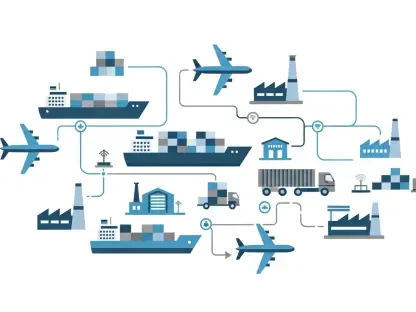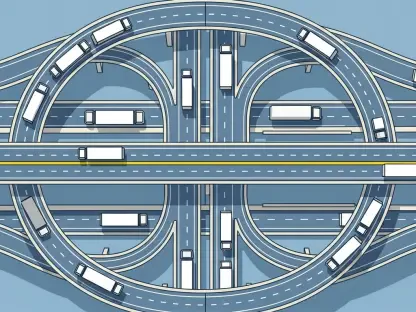China’s parcel delivery sector is poised for significant expansion, having demonstrated a robust performance with a year-over-year increase of 19.5 percent in package volume. This impressive growth underscores the industry’s capacity to manage an ever-escalating number of deliveries, highlighting its readiness for scaling operations to meet future demands. These developments came to the forefront during the industry’s annual conference in Beijing, where stakeholders reflected on the achievements and charted a course for continued expansion in the following year.The conference served as a pivotal moment, signaling the industry’s robust health and its strategic importance to China’s economy. By setting bold objectives for growth, industry leaders aim to bolster infrastructure and adopt innovative technologies that can enhance efficiency and cope with the growing package handling requirements. The parcel delivery sector is a critical component supporting e-commerce and bridging the gap between merchants and consumers. As it prepares to embrace new challenges, it stands as a testament to China’s dynamic market and its adaptive, forward-looking approach to evolving logistic needs.
Expansion and Development Strategy
Strategic Growth Targets for 2024
China’s State Post Bureau has laid out impressive goals for the parcel delivery sector, aiming to manage an unprecedented 13.2 billion parcels in 2024. This milestone serves as a testament to the sector’s enormous expansion, considering the tenfold surge in volume since 2013. The industry is not just handling a higher quantity of packages but is progressively becoming more sophisticated, integrating advanced technologies and expanding its logistics network to maintain pace with the soaring demand.The growth strategy outlined at the annual conference cuts across various facets of the industry. These include reinforcing the existing parcel delivery network and making long-term plans for the sector’s infrastructure, which are crucial for sustaining the current growth trajectory. The plans also highlight improvements in road and air cargo capacities, seeking an increasingly integrated approach involving high-speed railways, further improving efficiency, and bolstering multimodal transportation methods.
Enhancing Rural Delivery Services
Rural delivery presents a significant challenge in the logistics industry, with the “last kilometer” proving to be especially arduous in remote areas. During the recent conference, experts underscored the pressing need to enhance delivery services in these rural locations to stimulate local economies and contribute to overall economic vigor. The refinement of last-mile logistics is not merely a question of business efficiency; it’s a step towards narrowing the gap between urban and rural communities, ensuring that all people have fair access to a full range of products and services. The logistics sector, by focusing on improving this final leg of delivery, is positioned to make a substantial impact on economic parity and community development. The push for better rural delivery is a strategic move that acknowledges the importance of inclusivity in building a robust economy.
Sustainable Practices and Global Presence
Prioritizing Green Development
China is advancing its parcel delivery sector toward sustainability, targeting a significant increase in new energy vehicles by 2024. This eco-friendly shift aligns with China’s broader environmental goals and becomes vital when considering the vast number of packages delivered within the country. The move promises a marked reduction in the industry’s carbon footprint, embracing sustainable development principles.Furthermore, China’s establishment of 312 overseas distribution centers and 300 warehouses in 2023 is a strategic expansion, bolstering its international logistics capabilities. This expansion enhances China’s role in global parcel delivery, facilitating smoother cross-border transactions and expanding market access. The dual focus on domestic advances and international presence exemplifies China’s ambition to balance internal growth with its expanding global logistics influence.
Socio-Economic Impact
Job Creation and Economic Contributions
The parcel delivery industry in China has become an engine of job creation, offering stable and gainful employment opportunities. Sun Jijun, head of a Yunda Express distribution center, shares insights on the positive economic influence of the parcel delivery sector. These jobs not only affect individuals and families but also contribute significantly to the national economy. By consistently creating employment, especially in a tech-driven sector like parcel delivery, the industry helps in fostering a workforce that is adept and future-ready.In sum, the article underscores the strategic efforts taking place to enhance China’s parcel delivery network and infrastructure. With meticulous planning and a clear focus on sustainable growth, the sector aims to keep up with its exponential expansion. The narrative draws attention to both the macroeconomic outcomes, such as job creation and industry development, and the significant societal benefits, like the improved accessibility of services in rural areas.









